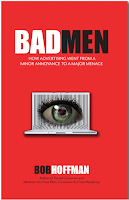I was having lunch with a friend from the ad business last week. After a glass of wine (or six) she laid into me:
"You're always going on and on about data and tracking, but you never seem to have the answer. All you talk about is what the problems are. If you're so f***ing smart how would you fix things and how would you explain it to people in terms they can understand?”While I freely admit that whining is a lot more fun than actually doing something, I decided to take a crack at the problem. I'm going to lay out what I hope is a simple, practical but far-reaching solution for data, tracking, and privacy issues.
First, a few principles that this solution is based on:
- Online publishers, media owners, and service providers have a right to make money from their efforts by selling advertising. If a user will not accept advertising or pay a reasonable fee, he/she should not expect to be able to access the content or service.
- However, this does not give publishers, media owners, or service providers the right to collect personal private information about a user without the user's knowledge and informed consent.
- Consumers have a right to decide what, if any, personal private information about them is collected, shared, and sold.
- A consumer’s right to privacy outweighs any benefits that may accrue to marketers or media through the collection and use of data.
- To paraphrase the great Doc Searls, it should be the individual who sets forth "Terms of Use" for his/her data, not the marketer, medium, or publisher
Radio, TV, magazines and newspapers have been successful for decades without the need to spy on us and collect unauthorized personal private data. There is no reason why online advertising can't be equally successful without these dangerous practices. But let's leave it up to individuals to decide what their appetite for privacy is and give them options that are simple to understand.
These privacy options should not be limited to online media and should be applied to all media.
Your comments/criticisms would be appreciated.
Thanks to Don Marti and Doc Searls for their help.










